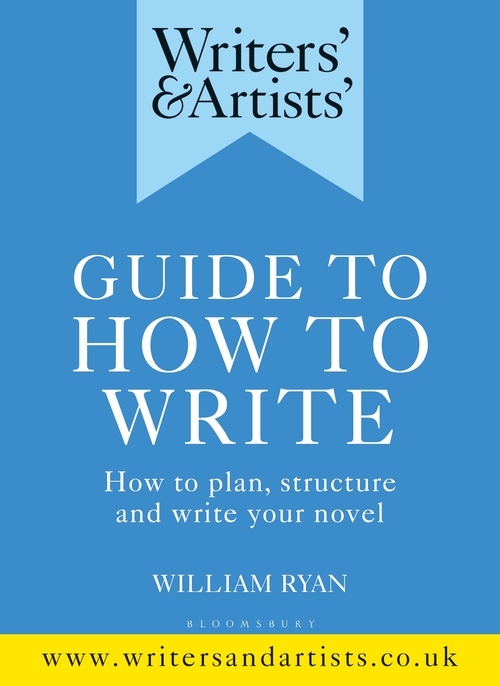In this extract of the Writers' & Artists' Guide to How to Write, William Ryan discusses the creation of your central character.

Most novels have a clearly identifiable central character and a story that revolves around that character’s efforts to achieve an objective, whether that be to climb Mount Everest, reconcile with a parent or be united with their beloved. When a novel has a clear central character the story is, in essence, their story.
The other characters, to a large extent, exist to either help or hinder the central character’s journey towards their objective, or to tell us something about the central character as a person. As a result, the novel will often be told mostly or completely from the central character’s point of view, and if there are other storytelling points of view, the central character will usually remain the story’s focus. In fact, even if the central character isn’t on a particular page or in a specific chapter, the story is almost certain to remain focussed on the central character and their journey through the novel.
Just as the central character is at the heart of the novel’s story, they are also fundamental to its success; if they aren’t a successful creation then that will have an effect on the reader’s engagement with the novel. In this chapter we will consider the central character’s roles, the decisions that a writer needs to make about them and the questions they need to ask of them in order to ensure that your central character will hold the reader’s attention until the very last page [...]
Can Your Central Character Carry Your Story?
Because of the way that we read stories, and because we often tell them through either the close third-person or first-person point of view of the central character, it is important that they are someone in whose company the reader wants to spend time. If the reader has no point of engagement and no interest in the central character, the reader will be unlikely to give a novel the (cumulative) eight or nine hours it will take them to read it. A dull or interesting central character is not ideal, while a character with exceptional intellectual and physical attributes, of an even and outgoing temperament and without any flaws or demons, will most likely cope easily with the challenges and obstacles the story presents to them – and that's not very useful either. For example, a kind, generous central character with no enemies is going to struggle to create the conflict with other characters that your story will require to give it momentum.
The solution, then, is to give them a more complex personality, and provide them with problems and dilemmas which the story will allow them to address. If, for example, your central character is in all respects admirable, but lacks courage and self-confidence, these are self-imposed challenges which they will have to overcome. These will also probably be challenges the reader will find interesting. Aside from making your central character complex, with some kind of weakness or flaw, you can also allow the story to transform an initially not particularly appealing character into someone more worthy of the reader’s attention. For example, a shy young woman in Nazi-occupied France may discover hidden strengths that are as much of a surprise to her as they are to the reader. The extraordinary pressure and danger of the situation may turn her from an ordinary person into an extraordinary one.
 Another aspect to consider is the reader’s expectations of the kind of novel that you are writing. For example, if you are writing a crime novel, you may find that there are genre expectations which you wish to follow or, alternatively, subvert. If you were writing a police procedural you might wish to have a gentle, slightly timid detective instead of a hard-boiled veteran of the streets. Or you might want to have a grumpy misanthrope as the love interest in a novel with a romantic storyline. A ghost story, for example, might be better told from the perspective of someone who is sensitive and perhaps predisposed to notice the supernatural but it might also work well with someone who is dubious about the existence of spirits and anything along those lines.
Another aspect to consider is the reader’s expectations of the kind of novel that you are writing. For example, if you are writing a crime novel, you may find that there are genre expectations which you wish to follow or, alternatively, subvert. If you were writing a police procedural you might wish to have a gentle, slightly timid detective instead of a hard-boiled veteran of the streets. Or you might want to have a grumpy misanthrope as the love interest in a novel with a romantic storyline. A ghost story, for example, might be better told from the perspective of someone who is sensitive and perhaps predisposed to notice the supernatural but it might also work well with someone who is dubious about the existence of spirits and anything along those lines.
Your central character doesn’t have to be a nice person in order to be interesting to the reader but they will have to have some other quality that gives them appeal – for example, by being witty or intelligent. Although Hannibal Lecter isn’t the central character in Silence of the Lambs, he is an interesting example to consider. He is malevolent and manipulative and probably not someone you would want to have around for dinner (not least because of his tendency to eat his fellow diners) but, by virtue of his intelligence and wit, he is engaging.
William Ryan is the leader of a number of W&A writing courses. View all upcoming W&A writing courses here
William Ryan has written four historical novels which have been shortlisted for numerous awards, including the Theakstons Crime Novel of the Year, The Kerry Group Irish Fiction Award, the HWA Gold Crown for Historical Fiction, the Crime Writers Association’s Steel, Historical and New Blood Daggers and the Irish Crime Novel of the Year (three times). William teaches creative writing at City University in London and has previously taught at the University of East Anglia. His latest novel, A House of Ghosts, was published in 2019 by Bonnier Zaffre. The Writers' & Artists' Guide to How to Write is published by Bloomsbury and available now.
Comments